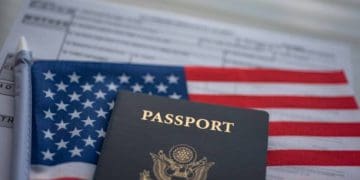Supply Chain News Report – 10/06/2025
The United States Supreme Court is entering a new term with two cases that could have far-reaching consequences for the balance of power between the president and Congress. At the heart of the debate are tariffs and birthright citizenship, issues that not only affect trade and immigration but also the constitutional limits of executive authority.
Chief Justice John Roberts and the conservative justices have often sided with former President Donald Trump on emergency appeals during his time in office. That pattern has raised questions about whether the court is willing to check the reach of the presidency, or if it will continue to uphold a broad interpretation of executive power. Legal scholars and political observers are closely watching this term to see if the justices draw clearer boundaries on how far a president can act without congressional approval.
The first major test involves tariffs, which Trump used extensively during his administration as part of his economic agenda. Traditionally, the Constitution places authority over tariffs and taxes in the hands of Congress. For much of U.S. history, tariffs were a primary source of government revenue, particularly before the introduction of the federal income tax in 1913. Trump, however, imposed multiple rounds of tariffs on imports, arguing they were necessary to address trade imbalances, protect national security, and reduce reliance on foreign goods.
Lower courts have pushed back, ruling that Trump exceeded his authority by acting without congressional approval. Judges determined that the tariffs were unlawful but stopped short of removing them immediately, citing the risk of widespread economic disruption. Businesses, importers, and entire industries had already adjusted to the tariffs, and undoing them overnight, judges said, could destabilize supply chains and create uncertainty for manufacturers and consumers.
The administration responded by moving the issue to the Supreme Court. In early September, government lawyers warned that if the tariffs were struck down later, the financial consequences could be staggering. Treasury Secretary Scott Bessent told the justices that the government could face a liability of up to one trillion dollars if businesses sought repayment or relief. The court agreed to hear oral arguments on November 5, a case that could reshape how future presidents wield economic authority.
If the justices rule in favor of Trump, legal experts say it could dramatically expand the scope of presidential power. Such a ruling would allow presidents to impose tariffs without seeking approval from Congress, as long as they frame the action as necessary for national security or economic stability. Critics warn this would weaken the system of checks and balances, giving the White House the ability to shape trade policy unilaterally. Supporters argue that in a fast-changing global economy, presidents need flexibility to respond quickly to threats and opportunities.
Alongside tariffs, the Supreme Court will also take up the issue of birthright citizenship, a cornerstone of U.S. immigration law since the 14th Amendment was adopted in 1868. That amendment guarantees citizenship to nearly everyone born on American soil, a principle that has been upheld for over a century. Trump’s legal team has challenged that interpretation, claiming it should not apply to children of undocumented immigrants, temporary visitors, or birth tourists.
Solicitor General D. John Sauer argued that the amendment’s original purpose was to extend citizenship to formerly enslaved people and their descendants, not to foreign nationals without permanent ties to the country. Lower courts have rejected this position, blocking attempts to change the established rule. The Supreme Court will decide whether to hear the case in full during its current term, with a ruling expected by next summer if it proceeds.
The two cases together highlight a broader question: how much unchecked authority a president can exercise. For Trump, tariffs became a defining part of his economic platform. He frequently described them as a way to revive U.S. manufacturing and reduce dependence on imports, calling tariffs “the most beautiful word in the dictionary.” His supporters saw them as a tool to strengthen domestic industries, while opponents pointed out that they increased costs for businesses and consumers and risked sparking trade disputes.
Similarly, the citizenship debate cuts to the core of how the United States defines membership in its society. Any change to birthright citizenship would represent a significant shift in U.S. immigration policy and would have lasting consequences for millions of families.
Legal experts say the Supreme Court’s decisions on these issues will shape not only trade and immigration but also the future of executive power. William Baude, a University of Chicago law professor, noted that the court has historically given wide latitude to presidents on matters of foreign policy and national security. However, he added, the justices may now face pressure to clarify limits on those powers.
As the term unfolds, observers will be watching whether Roberts and his colleagues step in to restrain unilateral executive actions or continue to affirm broad presidential authority. The outcome could redefine the separation of powers and set precedents that influence not only Trump’s legacy but also the authority of future presidents for decades to come.
#Tariffs #TradePolicy #SupremeCourt #ConstitutionalLaw #NewsUpdate















